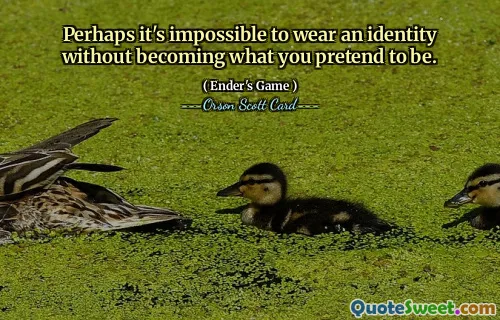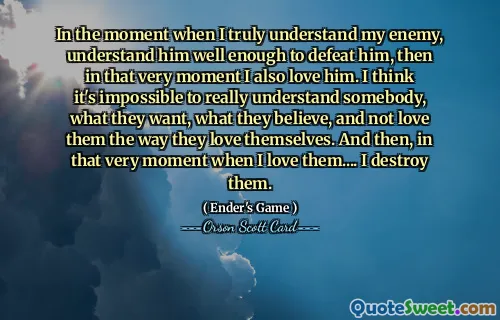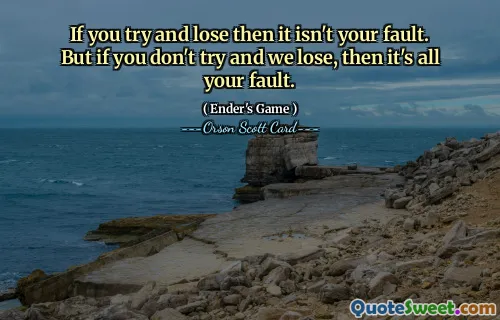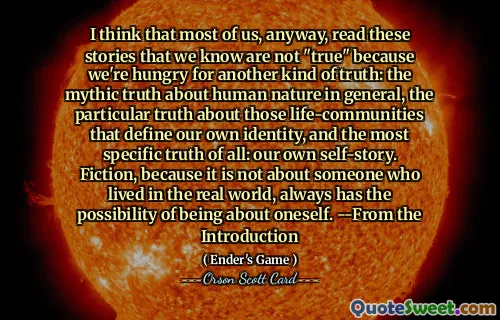
Sometimes lies were more dependable than the truth.
In "Ender's Game," Orson Scott Card explores the complex relationship between truth and deception, suggesting that at times, lies can offer a greater sense of reliability than the truth itself. This notion challenges the traditional view of honesty as a virtue, highlighting the context in which individuals may prefer fabrications to the harsh realities they face.
Through the experiences of the protagonist, Ender Wiggin, the narrative illustrates how manipulation and strategic deception can be necessary for survival and success. It raises important questions about morality, ethics, and the difficult choices that come with leadership and conflict, suggesting that deception is often intertwined with human decision-making.











